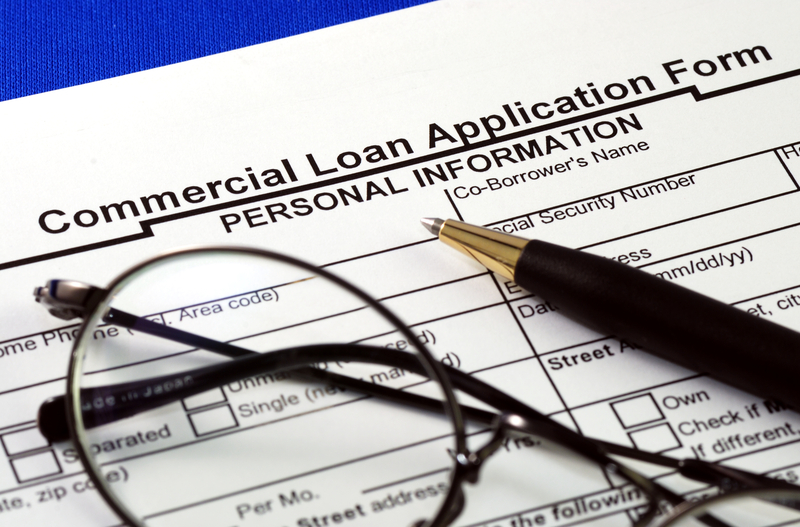Commercial Mortgage (More Key Points for Success)
April 11, 2016

The most recent blog article was about some key points to help investors get a commercial property as well as get a commercial mortgage – the emphasis leaned toward getting multifamily properties.This week we will continue along the same lines with some additional key points.
However, to summarize the previous article, we covered the importance of being able to define key terms and key elements concerning commercial investing, and commercial mortgages. We also discussed the importance of picking a very good commercial broker. Then we went over the key point of making a rational, not an emotional decision in selecting a property. Emotional decisions in selection of investment properties can cause financial disasters.
Next, we discussed the necessity of determining whether the numbers you get on a property are actual or fictitious. Many times, the numbers on real-estate listings are financial projections. These are not the true numbers, and not to be taken as true numbers. Basing your purchase on these financial projections (also called Pro forma) will quite likely cause financial loss. Lastly, we talked about stepping up to the plate to manage your team – the seller, your realtor, your lender, your attorney, and so on. Many people tend to procrastinate in what they say they will do. It’s your responsibility to set a timeline and keep them on course.
Here are several more points to help you in your acquisition of commercial property and getting a commercial mortgage:
1. Make sure that you thoroughly inspect the condition of the property. Many investors assume that the property they just purchased is in good condition because the real-estate listing read that it is in good condition. For example, such an investor may inspect 2 or 3 units of a 50 unit multifamily property, and think the building is in great shape. Neither the present owner or the seller disclose that many of the units are in terrible shape – water dripping into buckets to catch water from a leaky roof, exposed electric wire, black mold, broken appliances, etc. Unfortunately the investor purchases the property and experiences a financial nightmare. The investor didn’t know that it is imperative that you order a property condition report from a licensed company if a building was built over 20 years ago.
2. Inspect the quality of the neighborhood. Again, the real-estate listing may read something not true - that the property is in a good neighborhood for investing, but it may not be. An example is a neighborhood that is safe and clean, but it’s in a town where there is heavy unemployment due to a recent closing of a plant that employed a large number of the town’s people. Occupancy of the apartment buildings in the area has been dwindling. The investor was in love with the property, rushed the purchase, and did not do necessary due diligence. This results in a big financial loss.
3. Make sure that you check for rent concessions. A rent concession is a concession given to get tenants to occupy the property quickly. Some concessions are very poorly set up, causing the tenants to stay only one month. Example of a severe concession problem: An owner who wants to sell his property has a problem of low occupancy. It is only 76%. To fill the units fast, he gives a concession of $99 first months rent. Actual rent is between $500 to $600 per month. Furthermore, the owner doesn’t do a background check on these tenants.
The new investor who just purchased the property sees the figure of 95% occupancy on the real-estate listing, and is thrilled with his purchase. The rent roll is inaccurate - it does not disclose concession. And soon after purchasing the property, the occupancy starts dropping because tenants who were given the $99 first month concession start vacating the property. This results in the investor having a financial meltdown.
4. Make sure you manage your property manager. You might be asking, “Why do you need to manage your property manager?” You hire the manager—shouldn’t they be doing their job? The answer is that some professional property managers are dishonest or become dishonest in the management of properties. It is not a rare occurrence. Some property managers steal money. Some don’t take care of renting vacant apartments in a timely manner. Some don’t keep the property well maintained. The property manager is paid whether or not their doing a good job or not – this invites problems for people who are not very ethical.
Always inspect the job that your property manager is doing. Regularly inspect the property yourself, or get a trusted knowledgeable friend to do so. Closely inspect collection records. One of my favorite business quotes I’ve heard is “Inspection equals profit.” Another way to say it is – in running a business, where you do not inspect, profit is quite possibly leaving your hands.
Contact us to see if you pre-qualify for our best multifamily, commercial, bridge, construction, or business loan rates and terms.
Also, contact us if you would like to discuss your particular commercial lending needs, or if you have any other questions. Call 214-695-7310, or send an email to bruce@businessloanstore.com
To discover more about our loan products as well as rates and terms, visit www.apartmentloanstore.com, www.bridgeloanstore.com, or www.businessloanstore.com

Bruce Painter, Director of Marketing, Business Loan Store
CLOSING 97% OF OUR MULTIFAMILY LOANS AS PROPOSED
Getting the right loan and the lowest rate requires wisdom and finesse. If you’re ready to partner with a team of professionals who’ve built a foundation on straight talk and true strategy, we are the loan store for you.
28+ YEARS OF OVER-DELIVERING VALUE.
HUD Loans are one of the best options with the current level of interest rates. For a complete guide to HUD Multifamily Loans please go here:
